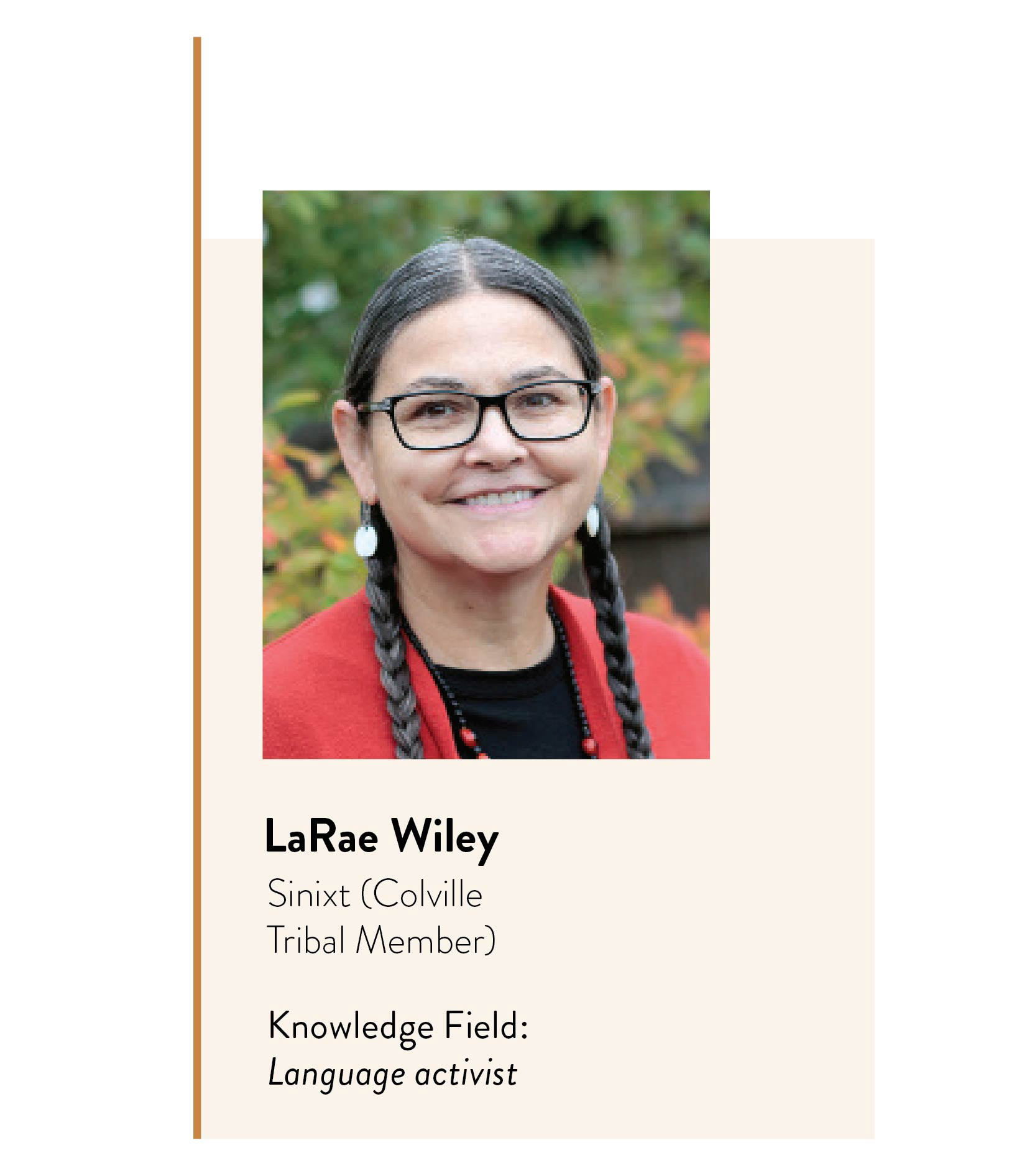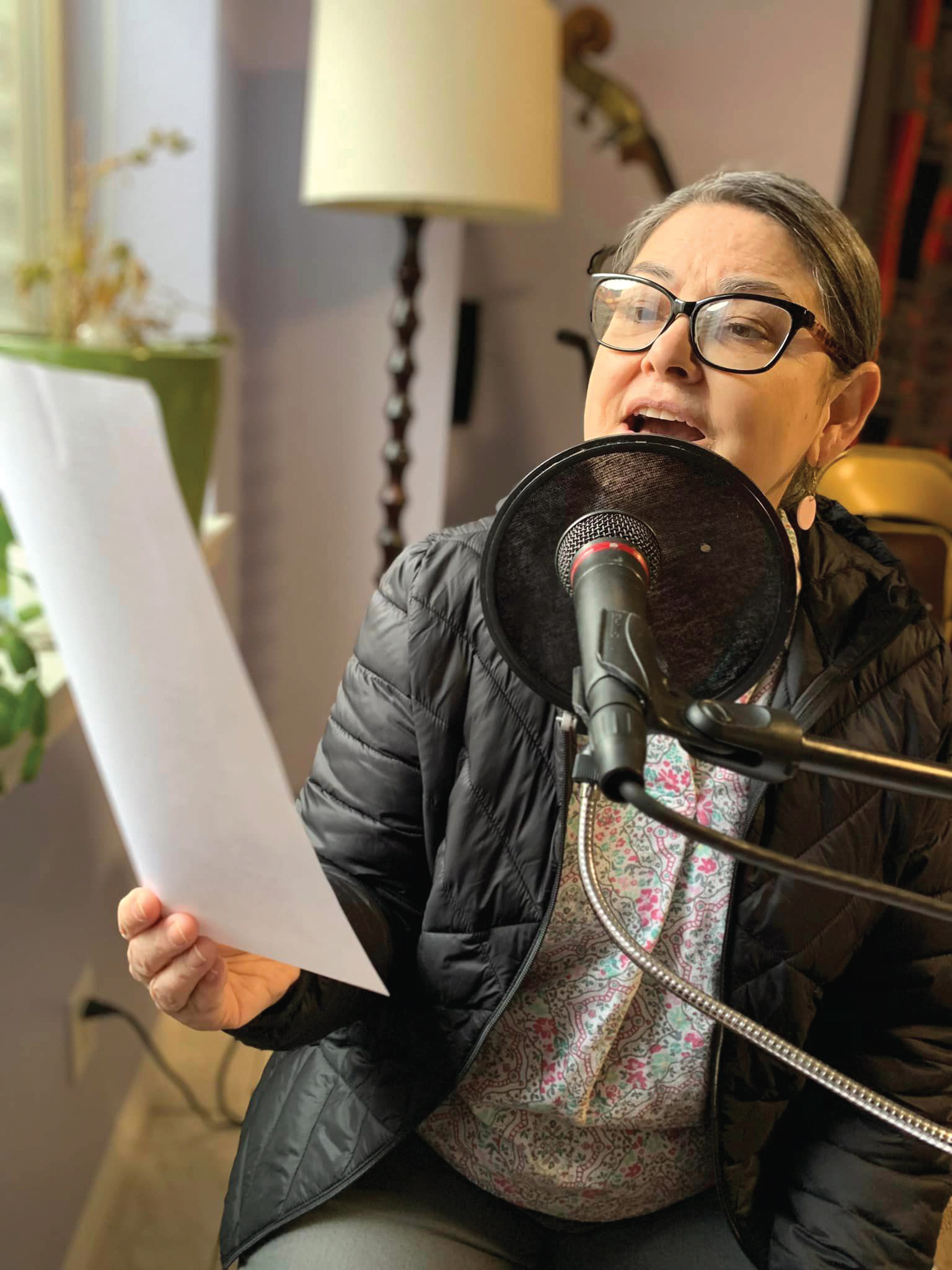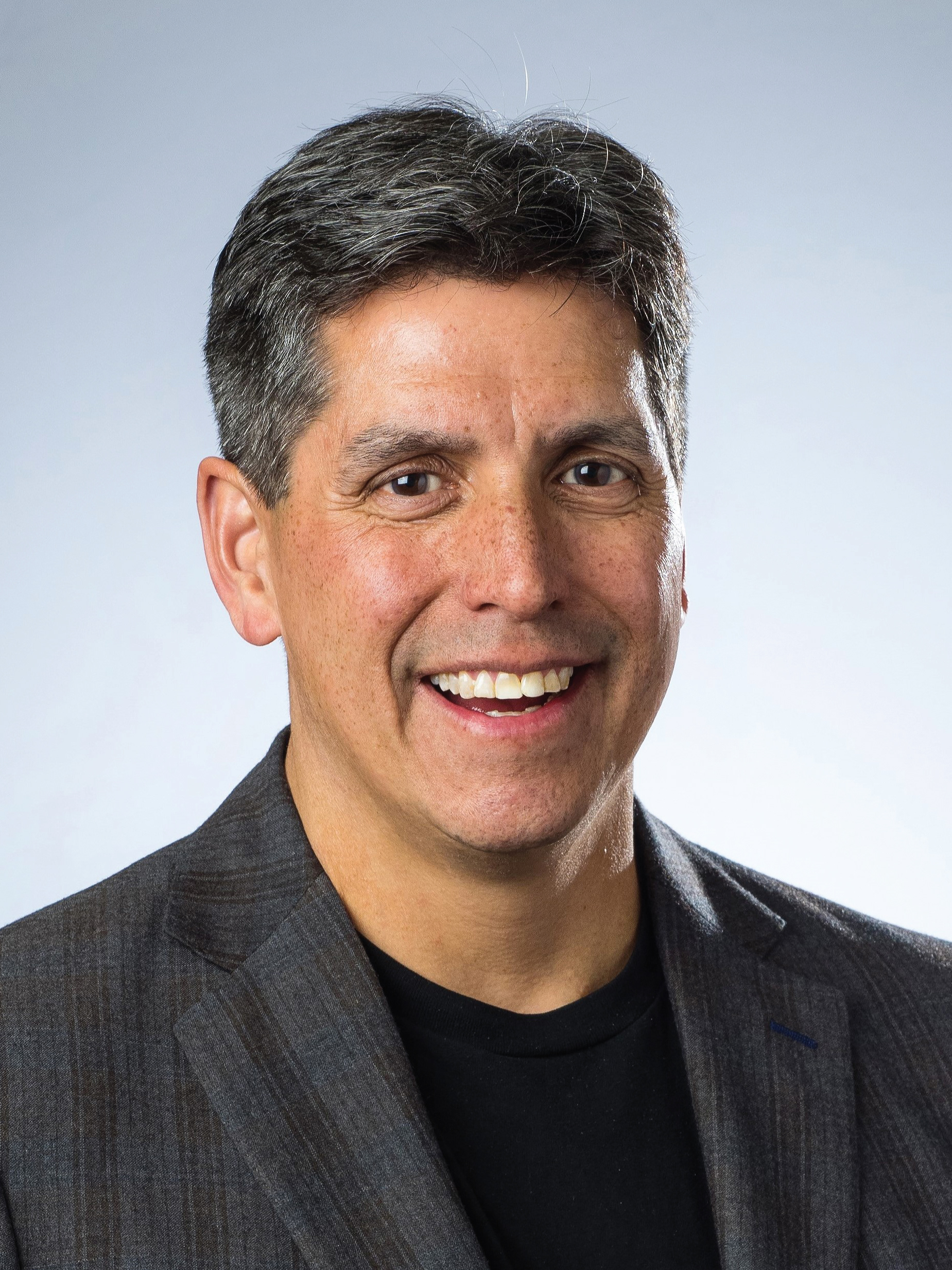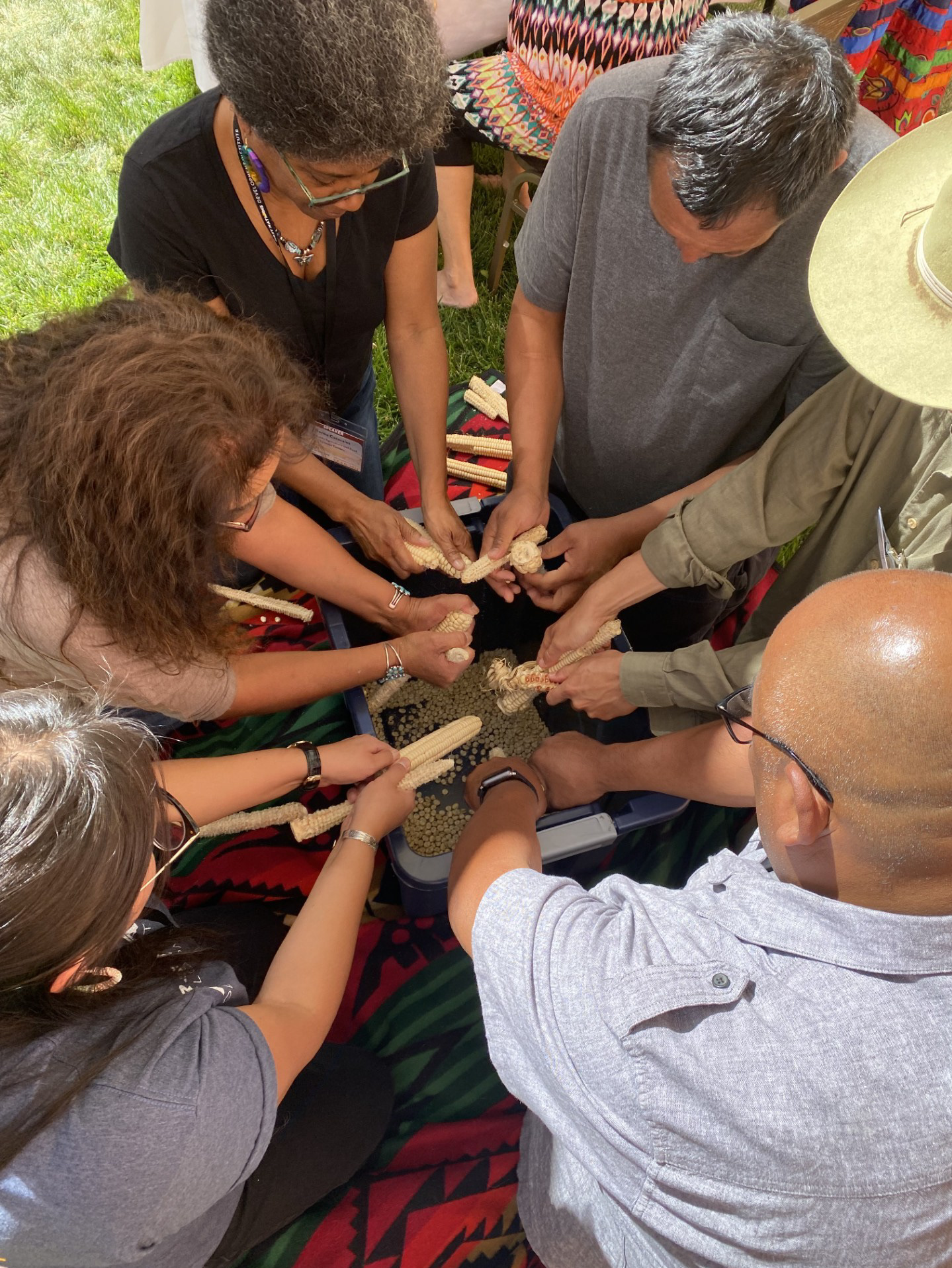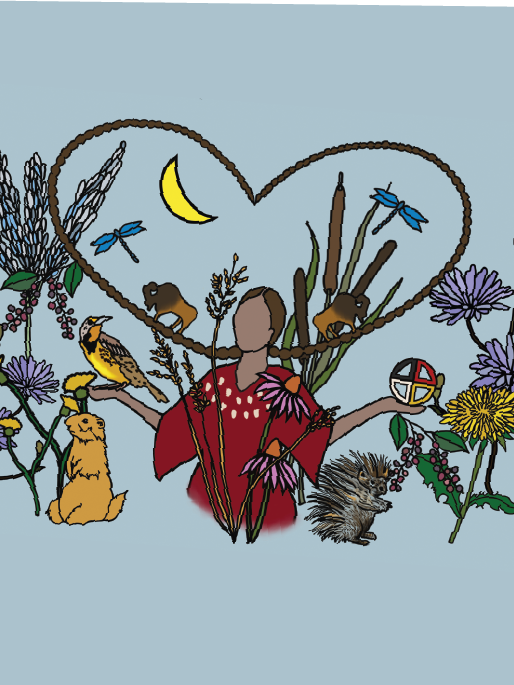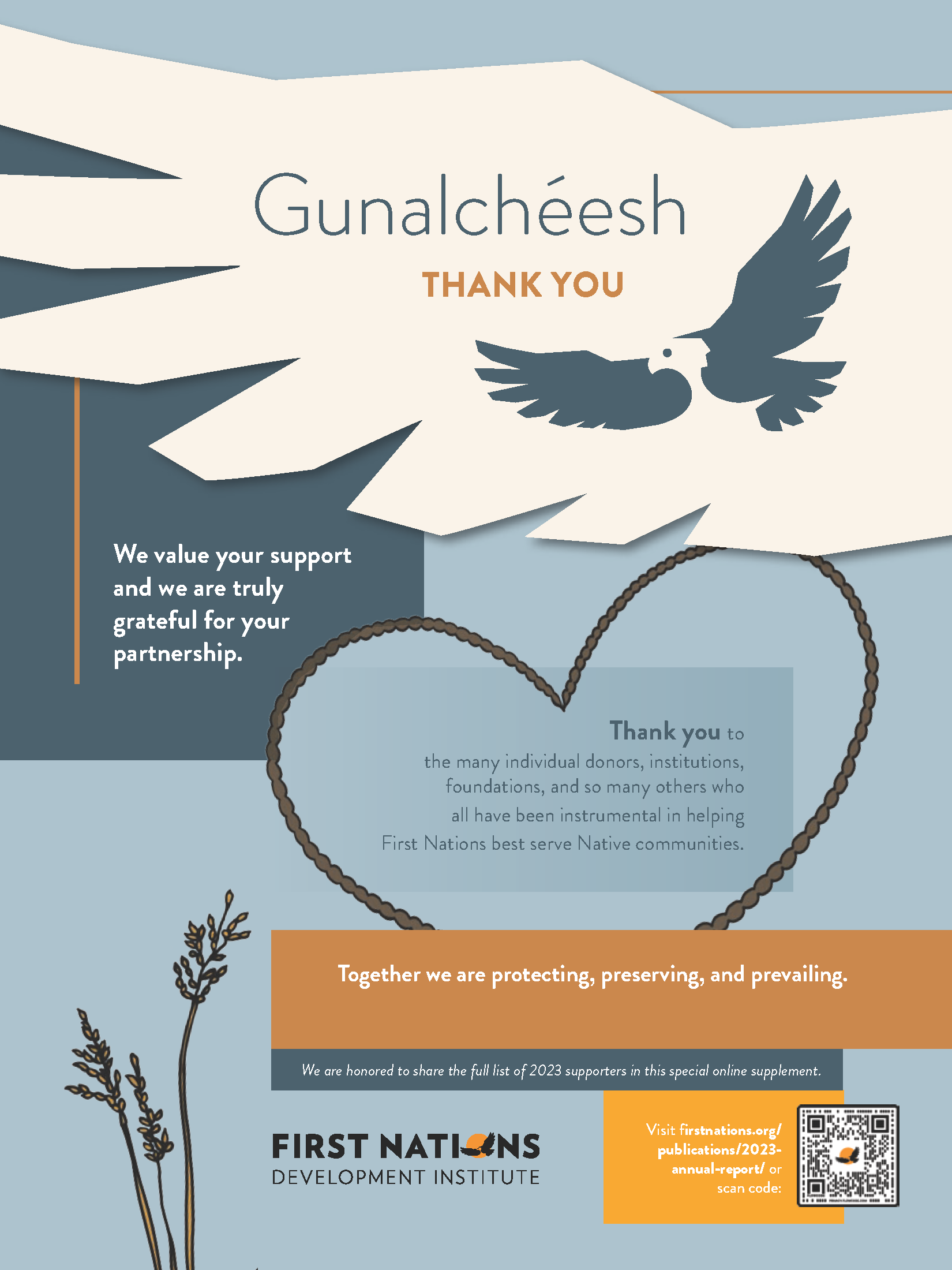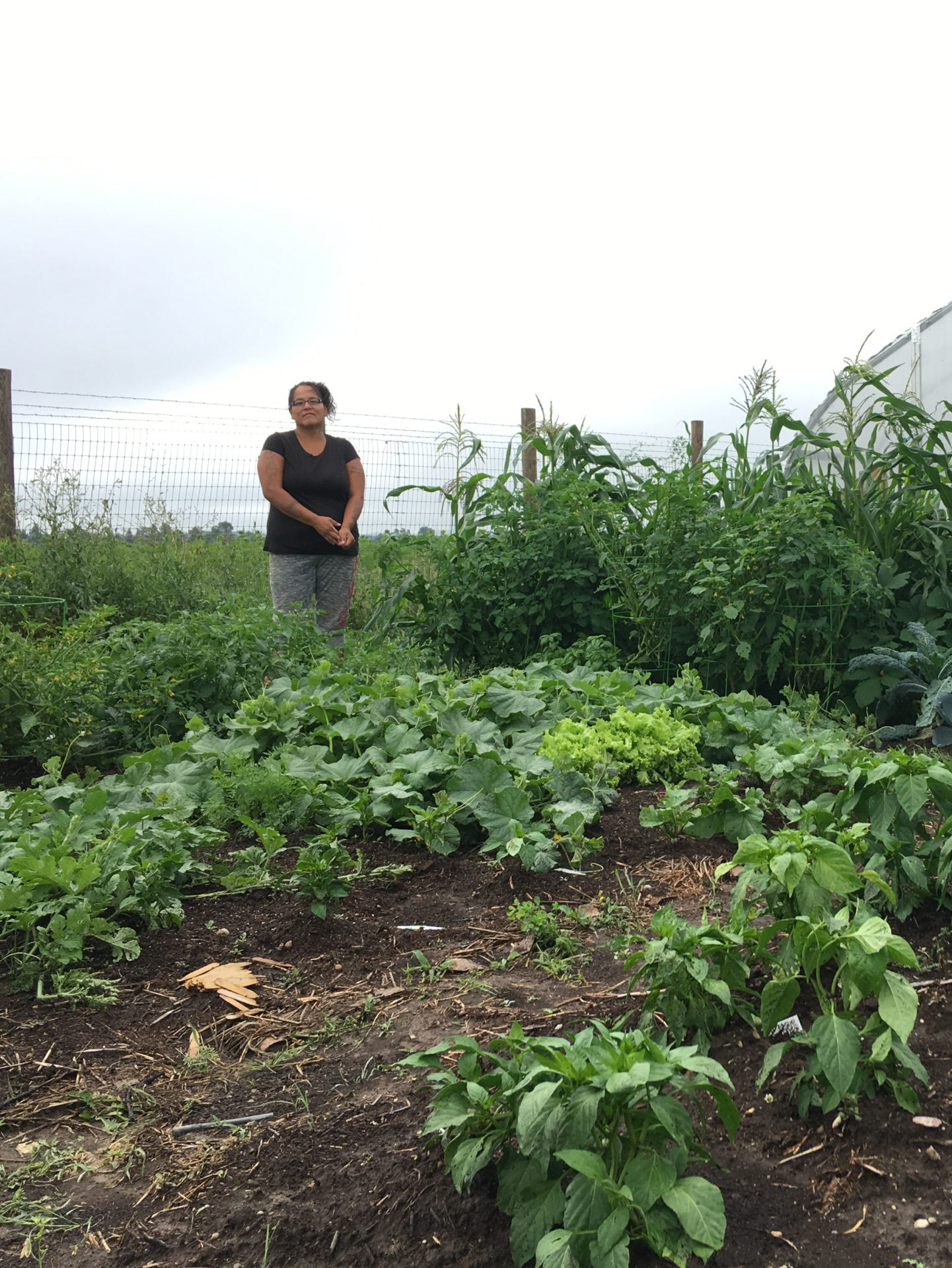Through the Strengthening Tribal and Community Institutions program, First Nations has historically worked to promote the technological, community, and economic development of our community partners, including Native-led nonprofits and grassroots community organizations, as well as tribal programs and departments. We have worked to strengthen their community institutional assets through grantmaking, training and technical assistance, and research and advocacy.
In our strategic planning process in 2023, we refocused this program under the new program name Native Arts, Language, and Knowledge to better encapsulate the scope of our reach: arts, language, culture, knowledge holders and knowledge keepers, and youth. The mission of this evolved program is to invest in the sustainability of Native communities and knowledge-holders who perpetuate inter-generational connections through arts, language, and lifeways.
Through this program, First Nations works to ensure communities have the tools to revitalize and preserve their languages, culture and connections are visible and exchanged, cultural practitioners are honored, and future generations of cultural practitioners are cultivated and celebrated.
First Americans’ Cultural Treasures Initiative
First Nations continues to support Native-led organizations and tribal programs working to sustain traditional artistic practices and long-standing cultural vibrancy of their communities for the benefit of future generations.
Through an innovative funder collaborative among the Ford Foundation and Margaret A. Cargill Philanthropies, First Nations’ First Americans’ Cultural Treasures Initiative is built on the recognition that cultural assets in Native communities connect the past to the present and the future, and ultimately preserve Native knowledge systems, identities, and lifeways.
Through an innovative funder collaborative among the Ford Foundation and Margaret A. Cargill Philanthropies, First Nations’ First Americans’ Cultural Treasures Initiative is built on the recognition that cultural assets in Native communities connect the past to the present and the future, and ultimately preserve Native knowledge systems, identities, and lifeways.
In late 2023, First Nations awarded $2,500,000 in grants to nine long-time community partners in Minnesota, New Mexico, Washington, and Wisconsin. These 24-month term grants range from $250,000 to $300,000 and focus on supporting partners with building capacity and stabilizing programs and operations, both areas of critical need due to the lasting impacts of COVID-19 in Native communities. Going forward, support for these grantees through networking and ongoing technical assistance will continue through 2025.
Justice Through the Eyes of Native Artists
First Nations recognizes that there is a need and an opportunity to understand how we can shape public opinion to increase public support for Native American justice.
Further, we know that art is an integral part of Native culture, serving as a way to visually address complex issues, emotions, and ideas, while preserving and perpetuating Native knowledge systems.
In line with this, in 2023 we launched the Native Justice Artist Gallery. In this virtual gallery, supported through the Chan Zuckerberg Initiative and curated by Danielle SeeWalker, select Native artists share their artwork or an artistic production that illustrates or reflects Native justice in their communities through the artist’s eyes.
Going forward, First Nations continues to highlight this gallery as part of our Building a Movement for Native Justice project. Read more.
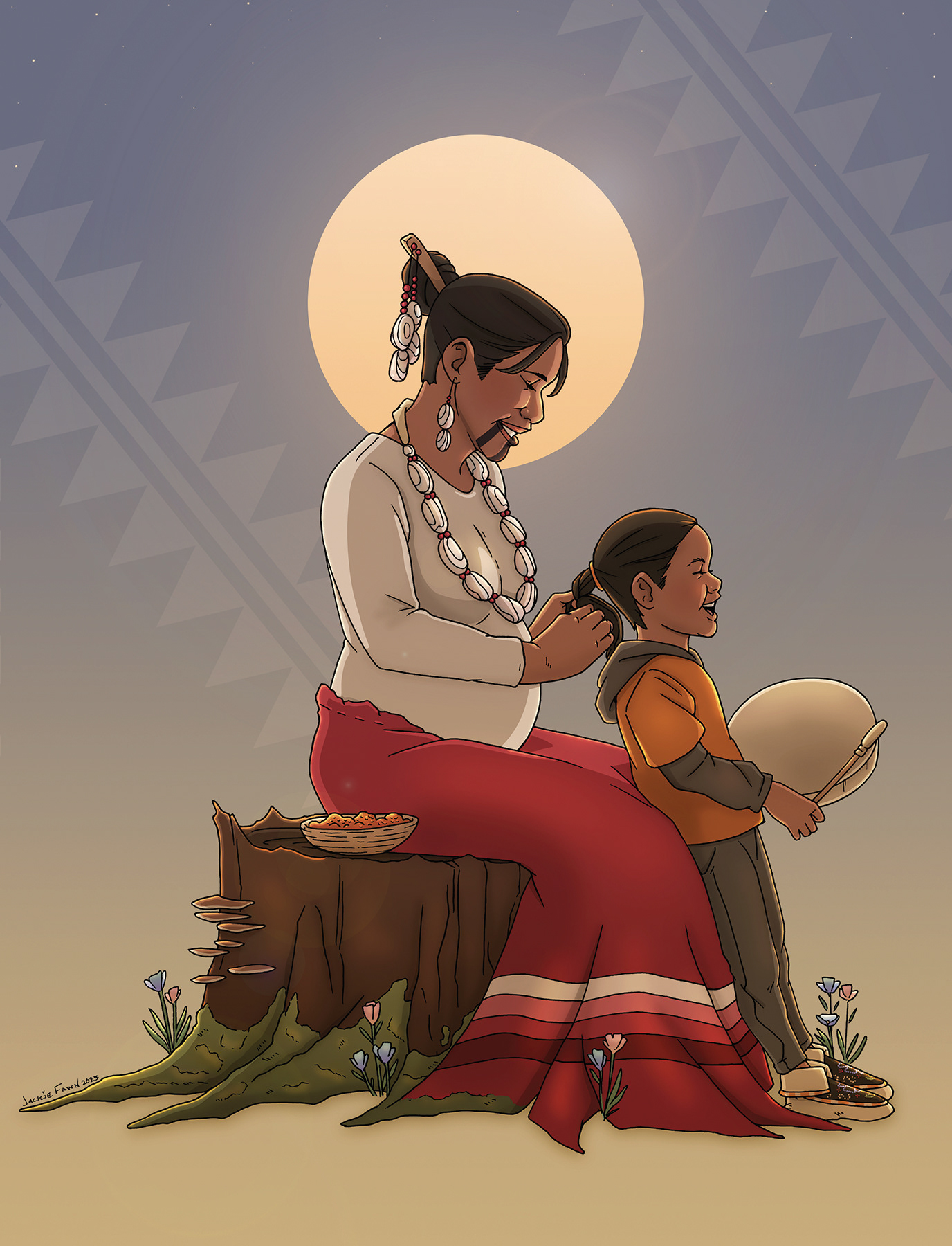
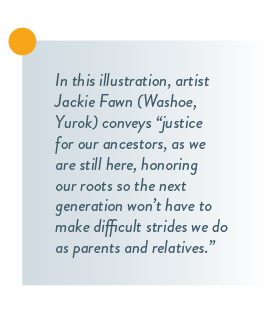
Native Arts Initiative
With funding from Margaret A. Cargill Philanthropies (MACP), First Nations launched the Native Arts Initiative in 2014 to support Native-led arts and cultural hubs that are working to preserve and advance traditional Native arts through programming to support artists and intergenerational sharing of artistic skills and knowledge.
In late 2023, First Nations awarded eight community partners with 24-month term grants ranging from $30,000 to $200,000 for a total of $1,330,000.
Located in Arizona, Southern California, Minnesota, New Mexico, Oregon, and Wisconsin, these partners’ projects have been focused on rebuilding efforts, since many had to pivot their arts programming to focus on community support throughout the COVID-19 pandemic. This project is continuing in the new year with more funding being directed to additional community partners.
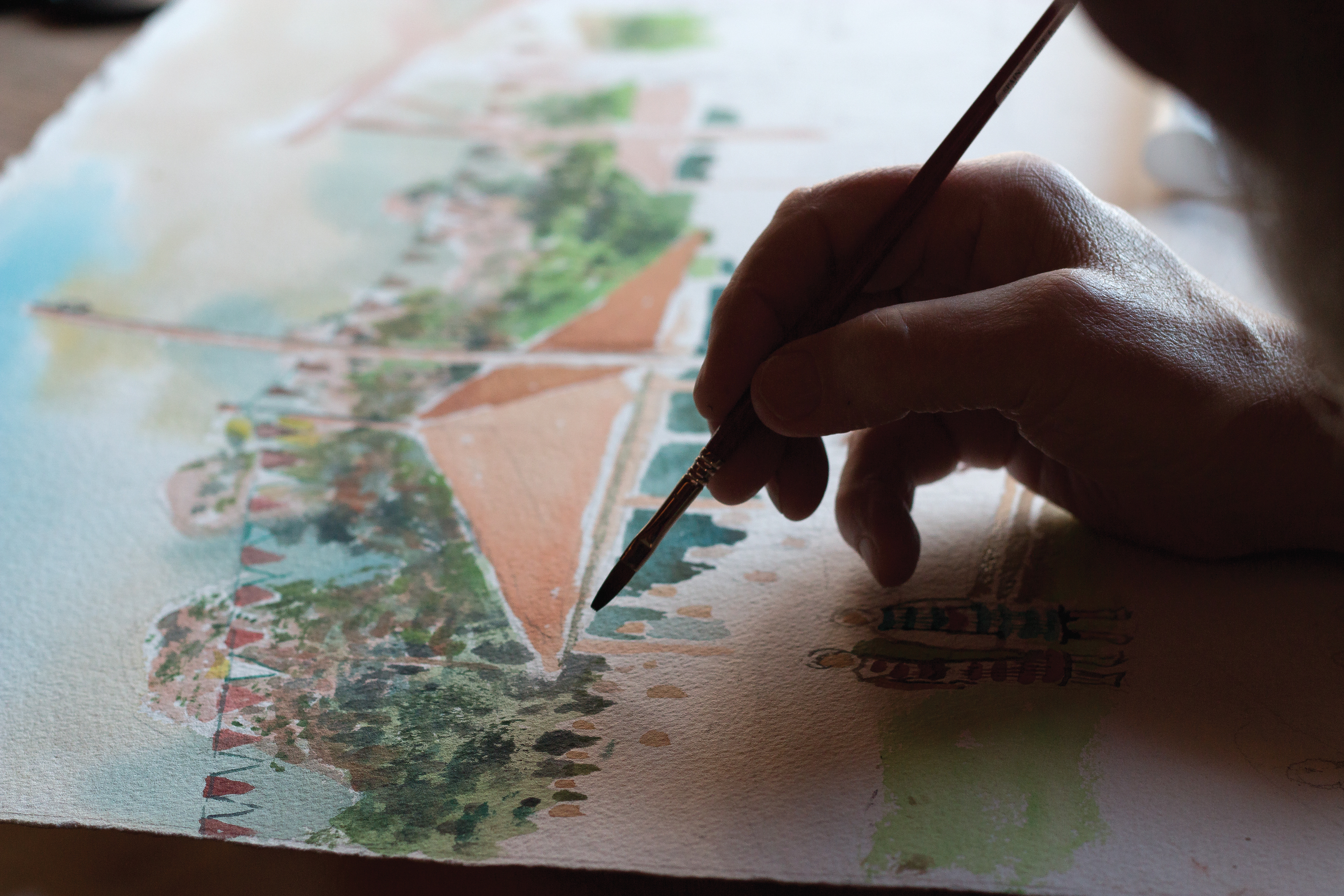
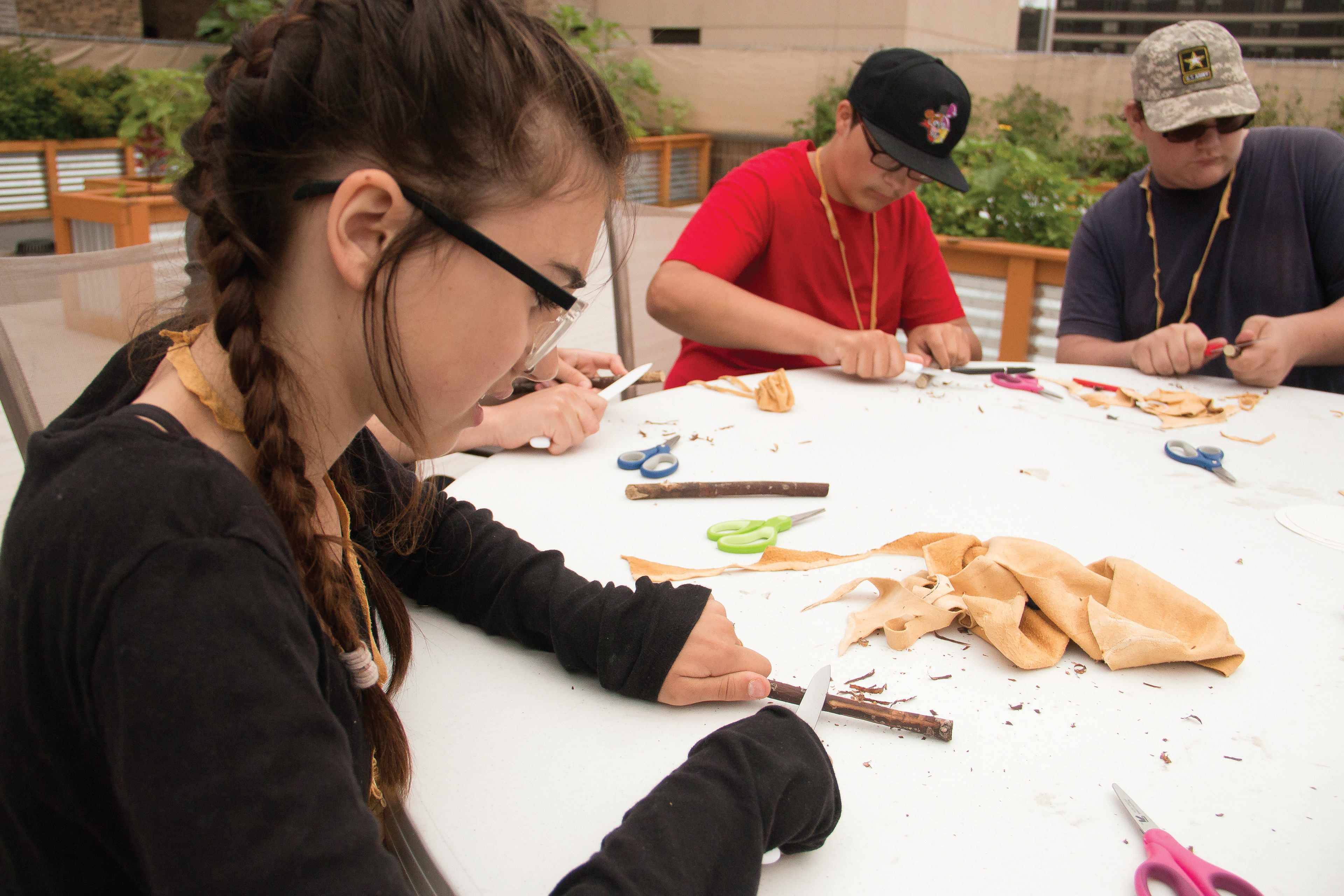
Native Language Immersion Initiative
The Native Language Immersion Initiative is designed to build the capacity of and support existing Native language immersion programs in tribal communities. In addition to providing direct financial resources, the initiative seeks to build a dialogue and community of practice among Native language immersion programs and momentum for supporting this work.
In 2023, 10 Native language immersion grantees continued language work within their communities. With support from the NoVo Foundation and the Sunderland Foundation, the following community partners received grant support of $675,000 each: ANC Childcare and Education Center, Inc., Cherokee Nation, Euchee Yuchi Language Project, Inc., Fond du Lac Tribal and Community College, Goldbelt Heritage Foundation, Hualapai Tribe, Keres Children’s Learning Center, Salish School of Spokane, Sicangu Community Development Corporation, and Santa Rosa Band of Cahuilla Indians.

First Nations believes that Native youth represent the future of Native communities and that investing in youth and giving them a sense of place and tradition in the community ensures a future of bright and capable leaders. We seek partnerships with programs that meet youth where they are, support them in accomplishing their goals and dreams as future leaders, and shape pathways that prepare them for an empowered adulthood guided by their cultures and families.
With support from the Kalliopeia Foundation, First Nations launched the Native Youth and Culture Fund (NYCF) in 2002 to support tribes and Native American-led organizations that work with Native youth through programs that
provide learning, leadership building, and intergenerational mentoring. One of First Nations’ oldest continuous programs, the fund provides support to Native organizations and tribes seeking ways to preserve, strengthen, or renew Native culture and tradition among Native youth.
provide learning, leadership building, and intergenerational mentoring. One of First Nations’ oldest continuous programs, the fund provides support to Native organizations and tribes seeking ways to preserve, strengthen, or renew Native culture and tradition among Native youth.
With generous commitments from Ford Social Justice, Waverley Street Foundation, the California Endowment Fund, and Apple, Inc., in 2023, we awarded 22 grants at the end of 2022, with ongoing technical assistance and support through the end of 2023. Recognizing the challenges our community partners were experiencing in the aftermaths of
the pandemic, grants were awarded as general operating support.
the pandemic, grants were awarded as general operating support.
Native Agriculture and Food Systems Investments Scholarship Program
In 2023, the Native Agriculture and Food Systems Investments Scholarship program was supported with generous funding from Newman's Own Foundation, Ruffin Foundation, and Waverley Street Foundation, totaling $54,000. The initiative awarded 41 scholarships to Native graduate and undergraduate students pursuing degrees in agriculture and related fields, ranging from $1,000 to $1,500 each. The scholarships not only provide critical financial support but also encourage Native American, Alaska Native, and Native Hawaiian students to enter vital fields, including agribusiness management, agri-science technologies, agronomy, animal husbandry, aquaponics, biosystems engineering, environmental conservation and management, environmental studies, fisheries and wildlife, food production, forestry, public health, and sustainable agriculture food systems.
Advancing Entrepreneurialism in Native Youth Project
With generous support from the Comcast NBCUniversal Foundation, First Nations continued to strengthen the digital inclusion, digital exploration, and ultimately the digital skills of Native communities in an effort to address barriers to broadband access that tribal lands and rural areas experience.
Through this project, as well as through our Building Digital Technology Capacity in Native American Communities project, in 2023, First Nations awarded six grants to support tribal broadband boot camps at the California Indian Museum and Cultural Center, Four Bands Community Fund, Mississippi Band of Choctaw Office of Economic Development, Oyate Community Development Corporation/Sitting Bull College Entrepreneurial Center Partnership, NDO Youth Council (Fort Peck Assiniboine & Sioux Reservation), and Sitting Bull College American Indian Business Leaders Chapter.
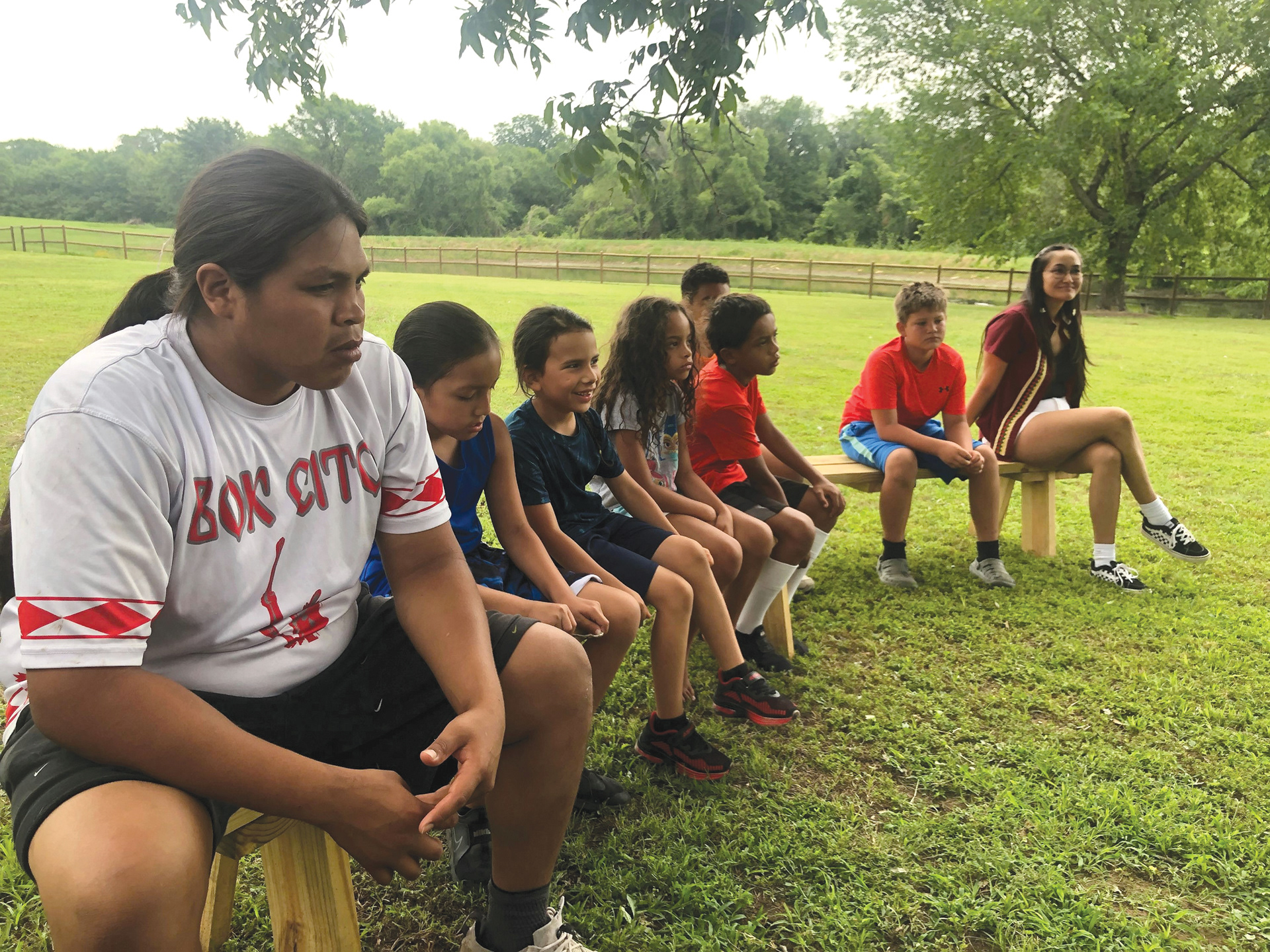
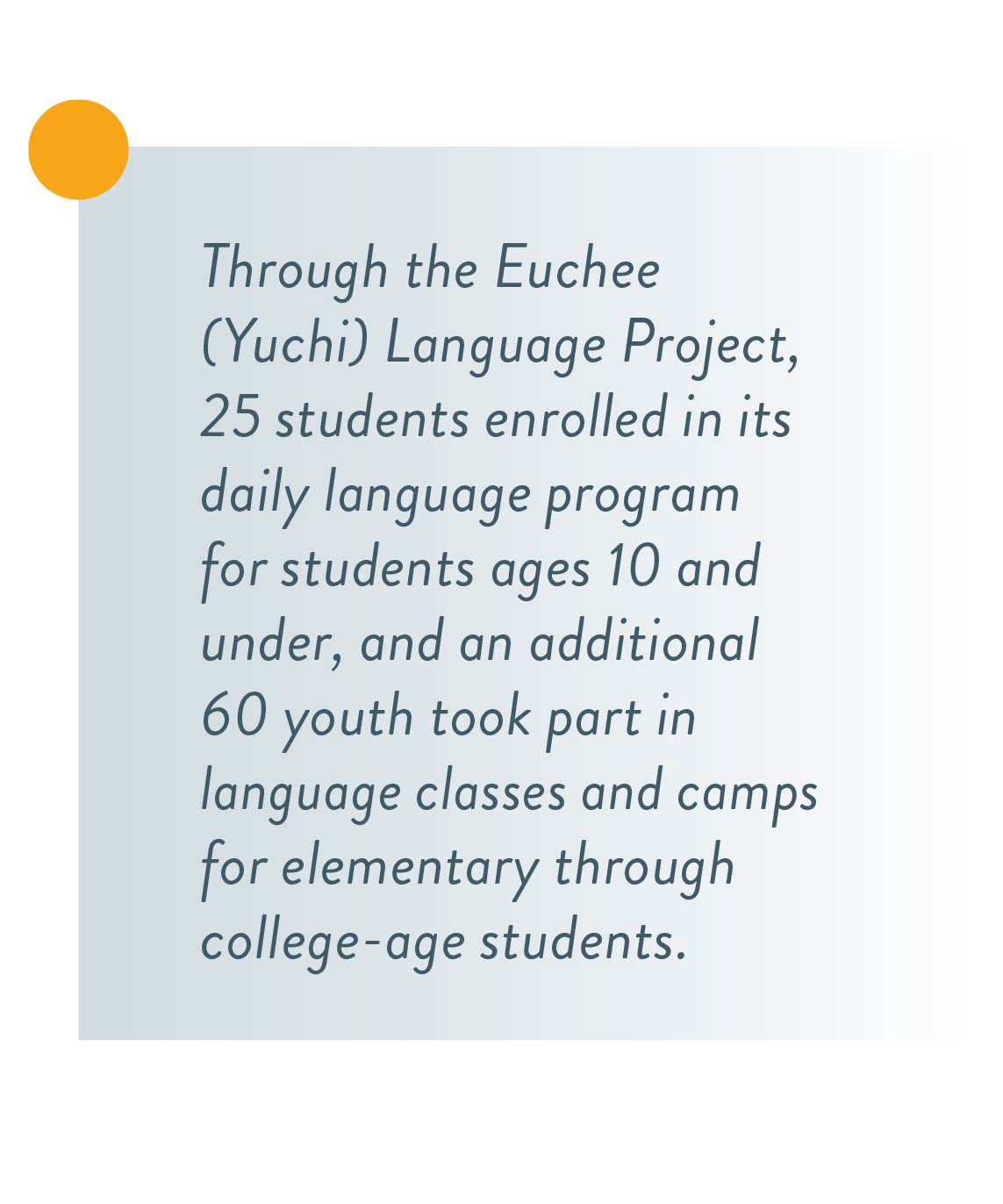

In the Santa Rosa Band of Cahuilla Indians, fewer than 10 of 222 enrolled tribal members speak the Cahuilla language fluently. “It is an extremely endangered language,” says Mercedes Estrada, coordinator of the Cahuilla Language Program. Currently, Estrada is teaching the language to 55 students — from tiny tots to adults, with an emphasis on children — and she predicts that if enthusiasm for language-learning continues at its current pace, a new fluent speaker of the Cahuilla language could emerge in about three years.
This year, First Nations helped grow the program with a $50,000 grant from the Native Language Immersion Initiative. Now in its sixth year, the initiative has gone a long way in helping to preserve Indigenous languages and cultures. To date, 62 grants totaling over $5 million have been awarded to 39 Native language immersion programs.
“This grant helped provide our tribal community with a foundation of language classes that will instill cultural knowledge and language skills for the next generation of Cahuilla speakers,” says Vanessa Minott, tribal administrator for the Santa Rosa Band of Cahuilla Indians. “We were able to hire Merci, who helped write the grant, as our language coordinator, and an assistant. Merci has developed a phenomenal curriculum based on the Cahuilla creation story, colors, commands, numbers, and animals.”
The Santa Rosa Band of Cahuilla Indians launched the Cahuilla Language Program in 2019, with fluent adult speakers mentoring future adult teachers online once a week. Because teaching the language to younger generations is a high priority for the tribe, according to Minott, a preschool curriculum was also developed at
that time.
that time.
With the First Nations grant, the newly hired Estrada was charged with making the preschool curriculum more age-appropriate for 5- to 12-year-olds who attend the tribe’s existing afterschool program. The original plan was to provide 12 students from this age group with 20 hours per week of language instruction at the Tribal Hall through games, activities, and play — teaching methods used by the American Indian Language Development Institute.
However, the interest in learning the Cahuilla language was so great within the overall tribal community that Estrada expanded the program to include adults and “tiny tots,” as well. To reach a large portion of the membership that lives off the reservation, the dedicated language teacher also conducts classes online through Zoom and Kahoot! Estrada now teaches 55 students, six days a week — at the Tribal Hall and online in the evening for adults and kids who cannot attend class in person due to work, sports, and extracurricular activities. “Honestly, if there’s somebody willing to learn the language, I will be there,” promises Estrada.


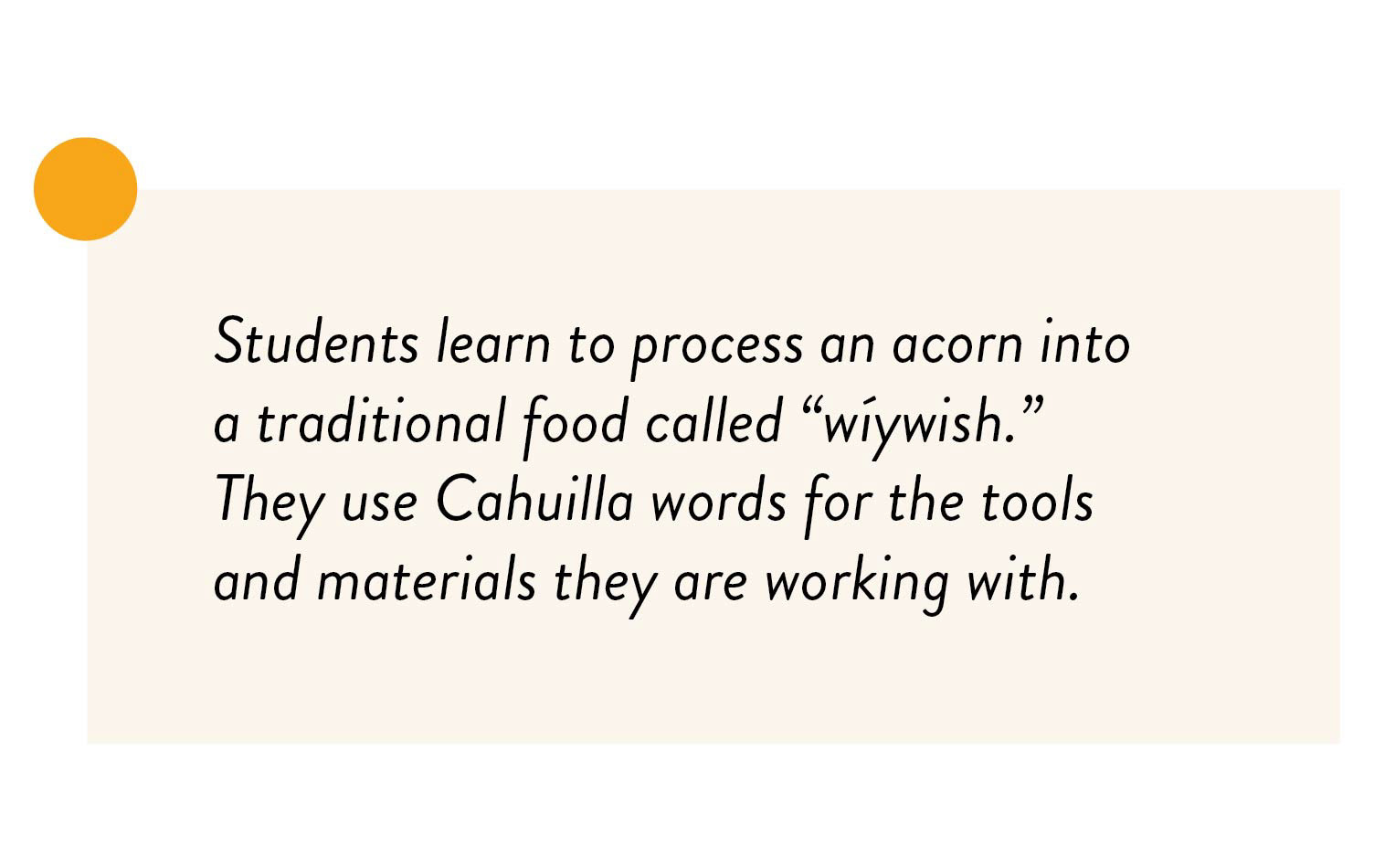

This year, LaRae Wiley (Confederated Tribes of the Colville Reservation), a member of the 2023 cohort of First Nations’ Luce Indigenous Knowledge Fellowship, was recognized for her efforts in preserving the endangered Salish language. The Spokesman-Review named Wiley one of 14 women across Eastern Washington and North Idaho in its annual “Inland Northwest Women of the Year” publication.
In 2010, LaRae and her husband, Christopher Parkin, started a language immersion school called the Salish School of Spokane, with students from preschool to eighth grade, as well as adults. As a Luce Indigenous Knowledge Fellow, LaRae focused on learning to “live, play, pray, and laugh” in her Salish language and culture. Now she is ready to lead a revitalization effort toward cultural immersion.
Through all her efforts, she remains laser-focused on language preservation. “Our goal is to have parents learn the language and raise their kids in it to create intergenerational pairs.” She has high hopes that she will live long enough to see someone raise a first-language speaker.
